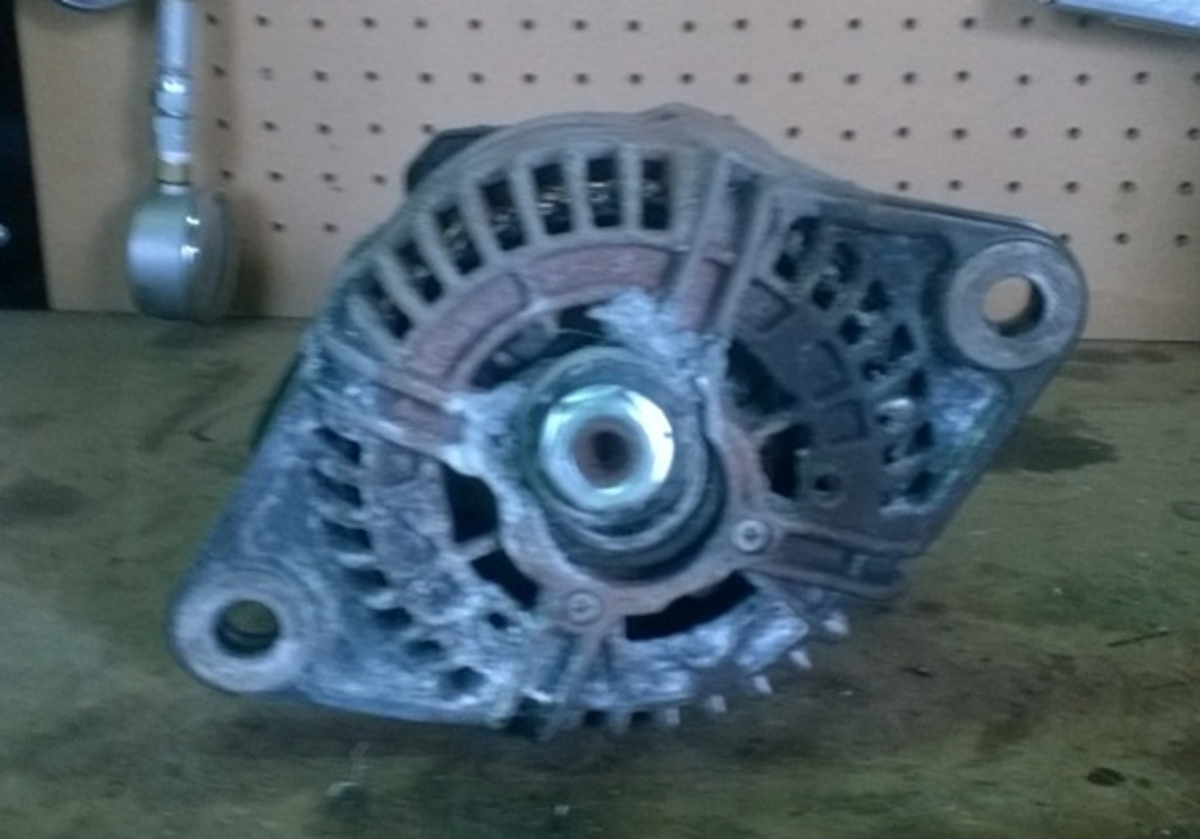Alternator bearing collapse caused small fire
- Safety Flash
- Published on 8 September 2014
- Generated on 14 February 2026
- IMCA SF 15/14
- 2 minute read
Jump to:
A Member has reported an incident on a workboat used in the offshore wind farm industry, in which there was a serious failure of an alternator bearing, leading to a small engine room fire.
What happened?
The vessel crew noticed a sound change from the engines and a reduction in revs (dropped by about 100 rpm) followed immediately by the fire alarm. The crew shut the fire flaps, and the fuel and ventilation shut off using the emergency stops. The engine room was checked, and smoke and small flames or glowing were observed from the alternator. The fire was extinguished, the safety of crew, passengers and vessel was confirmed, and the vessel returned to port on one engine.

Damaged alternator with shaft out of alignment due to bearing collapse
Our member’s investigation revealed the following:
- The crew were trained to respond to a fire alarm in a certain way and did so in a swift and professional manner.
- The problem was found to have been caused by a bearing collapse in one of the alternators.
Our member took the following actions:
- All alternators should be checked regularly for signs of damage which may manifest itself as ‘Black fluff’ in the windings.
- When the engines are shut down the alternators should be checked for overheating.
Related safety flashes
-
IMCA SF 10/14
30 June 2014
-
IMCA SF 10/14
30 June 2014
-
IMCA SF 10/14
30 June 2014
-
IMCA SF 10/14
30 June 2014
-
IMCA SF 09/01
2 August 2001
IMCA Safety Flashes summarise key safety matters and incidents, allowing lessons to be more easily learnt for the benefit of the entire offshore industry.
The effectiveness of the IMCA Safety Flash system depends on the industry sharing information and so avoiding repeat incidents. Incidents are classified according to IOGP's Life Saving Rules.
All information is anonymised or sanitised, as appropriate, and warnings for graphic content included where possible.
IMCA makes every effort to ensure both the accuracy and reliability of the information shared, but is not be liable for any guidance and/or recommendation and/or statement herein contained.
The information contained in this document does not fulfil or replace any individual's or Member's legal, regulatory or other duties or obligations in respect of their operations. Individuals and Members remain solely responsible for the safe, lawful and proper conduct of their operations.
Share your safety incidents with IMCA online. Sign-up to receive Safety Flashes straight to your email.